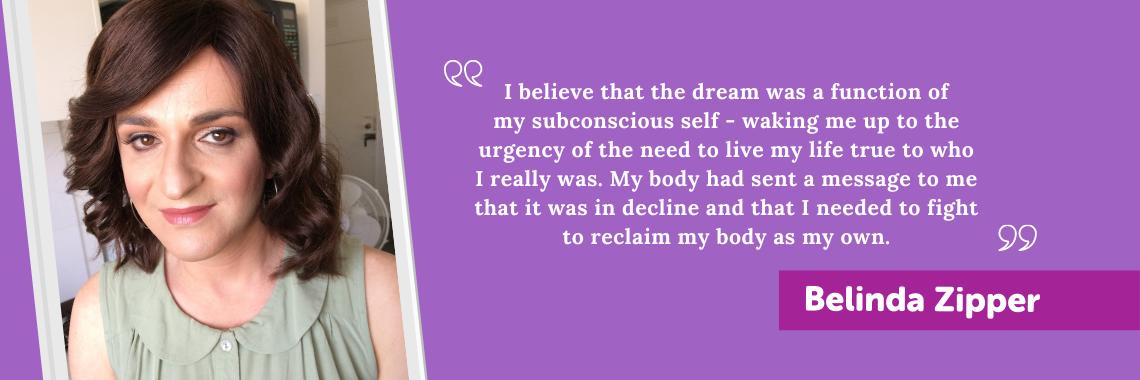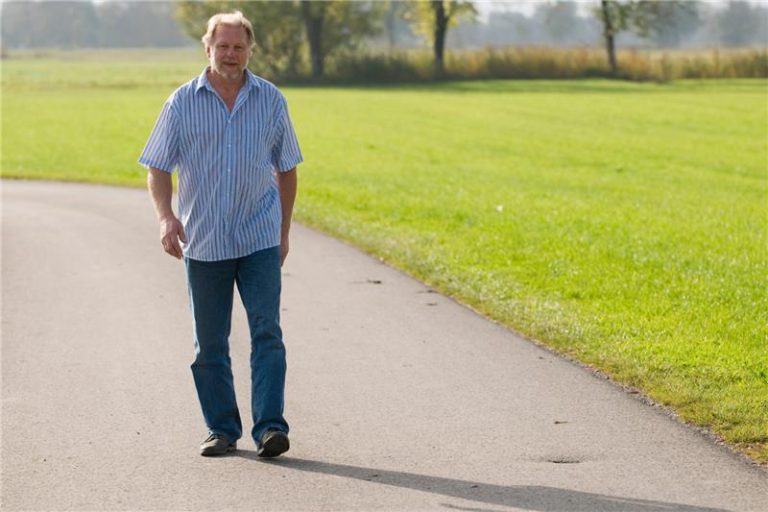
I was diagnosed with Parkinson’s disease in 2015, at age 44. My first symptom was that my right arm failed to swing when I walked (in hindsight, a not uncommon first symptom). There was no damage or pain in the arm, but I worried that it was serious.
As I stepped through the stages of visits to GPs and neurologists and various medical tests, I had a dream where I was living as a female (I had known that I was meant to be a girl when I was seven years old, but had over time suppressed this from my mind, largely due to an unaccepting society).
So I commenced developing my female self. For about two years I lived part-time as Belinda, until I realised that I needed to live every day.
I have two children: a boy aged 14 and a girl aged 10 (I am amicably separated from the children’s mother). When I told my son I would be living as my female self, he paused and asked “Okay, what’s for dinner?”
When I told my daughter, she said “What? You have dresses in the house and you’re not telling me?” She ran to my wardrobe, pulled out a dress and said “Oh Dad, you’re going to look so pretty in this, and when I’m grown up, I will look pretty in it too”.
My dear friends have been very supportive. When I told my mum, she was not surprised: she said she always knew that I was her daughter. My father is Orthodox Jewish, and I was worried that he would not accept this. Surprisingly, he was very gracious and said he was happy for me to live my life as I saw fit.
Since then, I have continued on the long journey of discovery and becoming.
The transition journey never really ends. I have been on female hormones and testosterone blocking medications for about three years now. As I started hormone treatment somewhat late in life, the results (mainly breast growth) have not been as significant as I may have wanted.
And despite the restrictions on elective surgeries last year due to the COVID-19 pandemic, I was very fortunate to meet my goal of gender reconstruction surgery in July 2020. And in January I went under the knife again, this time for breast augmentation surgery.
In the years since diagnosis, my Parkinson’s symptoms have fortunately progressed very slowly. I exercise daily, and have at times included yoga, Pilates, tai chi, Zumba, bike riding, swimming and specific Parkinson’s exercises to maintain flexibility, mobility and strength.
Each day I take four doses of a synthetic form of dopamine; when it works, I feel totally normal. As each dose wears off during the day, I become slow, tired and fatigued, and daily functioning is possible but difficult.
Sleep is also a problem, as is constipation. I tell people that I spend half my waking life in a state somewhat like having a bad flu; imagine trying to chop vegetables whilst wearing oven gloves!
Despite these symptoms, I get by. I hold down a demanding full-time job (with the Walter and Eliza Hall Institute of Medical Research), parent two children half the week and make time for my artistic practice.
Earlier in the year I worked as a (nude) life model for an artist, who will soon do a second portrait of me following my surgery. I have also modelled for a professional make-up artist who wanted to show her clients how make-up is done for transgender women.
And I am writing a novel based on my life experiences.



